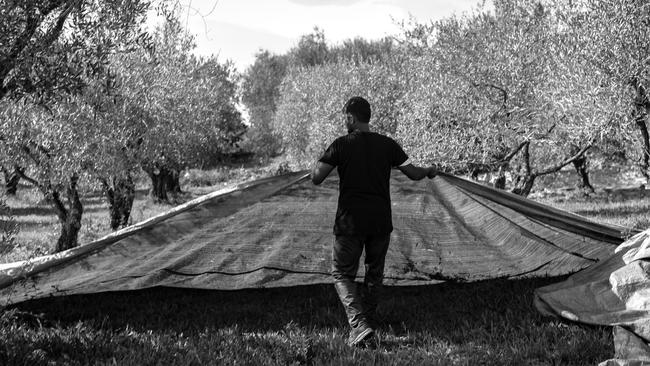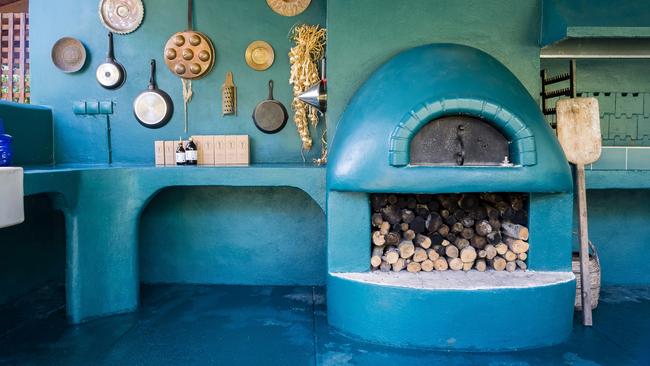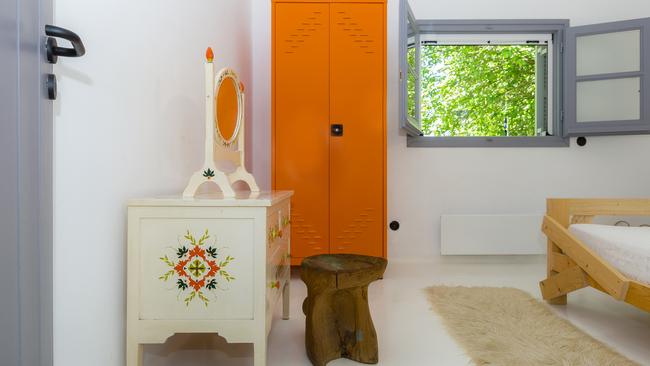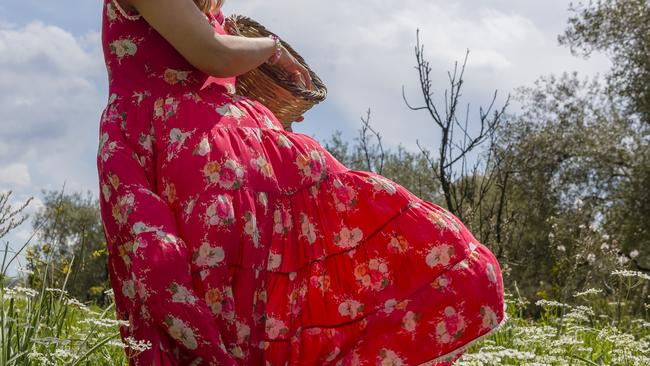Corfu travel guide
Olive oil tourism is the latest form of culinary-themed travel for food fans. On the island of Corfu in Greece, the awards are flowing to an organic oil farm now open to visitors.

At first, I didn’t spot the rooster preening on the knobbly branch of an olive tree. My eyes were on the eggs nestled in the chicken coop, a patchwork of painted doors and lopsided planks that could have been an art installation. “I was at Dover Street Market in New York recently and they had built an almost identical shack in the shop,” Christina Martini says, laughing, backed up by a chorus of chuckling hens. Her husband, Apostolos Porsanidis-Kavvadias, built the coop with props salvaged from the set of The Durrells, a British TV series based on Gerald Durrell’s memoirs of life on the Greek island of Corfu in the 1930s. “Here on Corfu you use whatever you’ve got,” Porsanidis-Kavvadias says. He also made the charmingly wonky wooden chairs and tables scattered about the couple’s three-hectare organic farm, using Enzo Mari’s Autoprogettazione, a series of open-source furniture designed in 1974.
Discover a delicious serving of next-level, food-focused destinations in the latest edition of Travel + Luxury magazine, available online and in print on Friday, 16 June.
This idiosyncratic DIY aesthetic is not surprising given the design credentials of the couple: Martini (who designed footwear for Balenciaga and Louis Vuitton) is creative director of cult shoe brand Ancient Greek Sandals; Porsanidis-Kavvadias was a product designer for Jerszy Seymour in Milan and Rena Dumas in Paris where he designed everything from silverware to leather stools for Hermès. After the birth of their first child in 2010, they decided to leave Paris for a six-month stint at his family’s summer retreat, a 19th-century farmhouse surrounded by olive groves, a 15-minute drive from Corfu’s alluring, pastel-hued capital. The sabbatical quickly turned into a radical life change. Martini founded her made-in-Greece sandal brand and Porsanidis-Kavvadias turned his attention to the olive trees that his grandfather, an orthopaedic surgeon, had begun harvesting in the 1950s.
“By the time we moved here, the grounds were pretty much in ruins – everything was overgrown,” says Porsanidis-Kavvadias. “Living on an island and learning to become a farmer was a culture shock. I knew nothing about working the land – I was an urban guy working all day on a computer.” The seed had been planted when Jean-Louis Dumas, the former president of Hermès, gifted him a bottle of olive oil from the Dumas family’s estate on the Greek island of Aegina. “I had a sort of epiphany: why can’t I produce my own olive oil on Corfu?”

A luxuriant and humid island, Corfu is covered in hundreds of thousands of olive trees, but the steady rise of tourism since the 1960s led to a decline in agriculture. Abandoned stone olive mills are scattered all over the island. “Corfu had the worst reputation in Greece for olive oil,” says Porsanidis-Kavvadias with a wry grin. “The locals would just throw nets under the trees and gathered the olives from the ground. People would laugh when I told them what I wanted to do, but I’m very persistent.” At first, he took his olives to be pressed at a nearby convent, where a handful of nuns initiated him into the mysteries of extra virgin olive oil extraction. By 2018, Dr Kavvadia’s high-polyphenol olive oil had won gold at the prestigious World Olive Oil Competition in New York.
The olive trees are cultivated organically and sustainably, so yields are small. Every bottle (in Aesop-style packaging that details the health benefits) is numbered and dated. Production is limited to two rare local varieties, lianelia and thiako. As we wander through the estate, tiptoeing around a profusion of wildflowers and sunbathing cats, Porsanidis-Kavvadias explains the difference: the lofty lianelia trees, some of them 400 years old, yield fruit that makes a balanced and pungent oil, while the stumpier thiako produces a peppery oil with notes of chamomile, almond, and freshly cut grass. Until we sampled the oils in the peacock-blue outdoor kitchen, dipping in kohlrabi, spring cabbage and celery we had just picked from the kitchen gardens, I had no idea that olive oil could have such a complex flavour profile.
Although Greeks consume more olive oil than any other EU country (around 12 litres per person every year), oleotourism is only just taking off in Greece. This is one of the few olive farms where guests can stay overnight, either in the former Olive Storage House or Dafni’s Stable, a three-bedroom house next door. A far cry from your average agriturismo, the décor is refreshingly un-rustic. I stayed in the Olive Storage House, which has a lemon-yellow bathroom, a modular turquoise sofa, painted cement floors, and a lively mix of antique heirlooms and folk art – including a tapestry and an olive-wood bowl designed by Porsanidis-Kavvadias. (Some of his limited-edition objects, and other locally made crafts, are for sale in the farm shop, the wares laid out around the original olive press.) The cottage feels like a real home, with a wood stove for winter and a proper kitchen. Breakfast is self-catering, but guests can help themselves to fresh produce and eggs.

“Renovating the guest houses was a fun excuse to start designing again after a long hiatus,” says Porsanidis-Kavvadias. “Eventually, I would love everything on the farm to be handmade or produced locally. I’d like to invite all my creative friends to add their touch to the farm, exploring notions of Greek style and craftsmanship.” Plans are afoot to build some huts and treehouses on the estate and host retreats combining design with farm activities. For now, guests can help with the olive harvest in the autumn or sign up for occasional food and wine workshops: foraging with a local herbalist, alfresco feasts with local wineries and micro-breweries, or cooking sessions with the island’s top chef, Aristotelis Megoulas of Pomo d’Oro restaurant in Corfu town.
Although Dr Kavvadia’s farm feels deliciously secluded, it’s well placed for exploring the island. You can’t go wrong armed with a cheat sheet of the owners’ favourite places: a royal garden with a secret beach, a hidden café on the estate of the first governor of Greece, or a visit to Patounis where olive-oil soap has been made by hand since 1850. But it would be easy to while away a holiday lazing in a hammock under the olive trees. “This is where I’ve spent the happiest summers since childhood,” says Porsanidis-Kavvadias. “As a kid, my dream was always to live on Corfu and on this farm. If my younger self could see me now, he’d be happy.”
From €200 a night for the Olive Storage House (sleeps four) and €250 for Dafni’s Stable (sleeps six). Farm tours and olive oil tastings (Monday to Friday from April to October) need to be booked in advance. drkavvadia.com


To join the conversation, please log in. Don't have an account? Register
Join the conversation, you are commenting as Logout